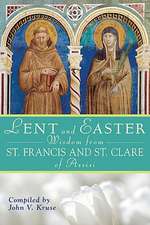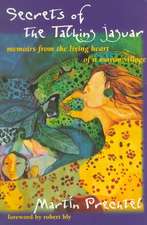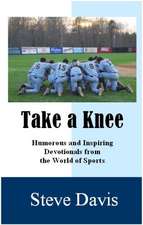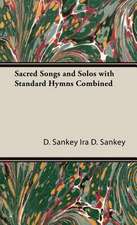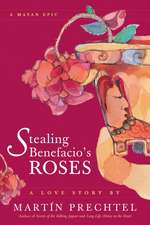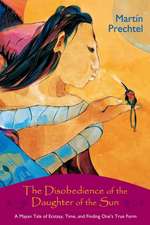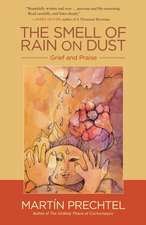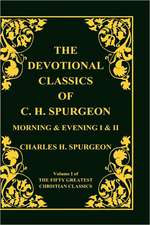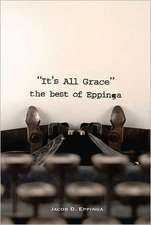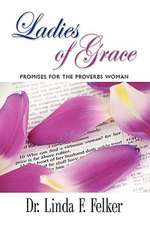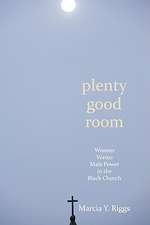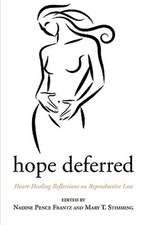The Unlikely Peace at Cuchumaquic: Keeping the Seeds Alive
Autor Martin Prechtelen Limba Engleză Hardback – 31 dec 2011
Prechtel relates our current state of ecological crisis to the rapid disappearance of biodiversity, indigenous cultures, and shared human values. He demonstrates how real human culture is exterminated when real (not genetically modified) seeds are lost. Like plants that become extinct once their required conditions are no longer met, authentic, unmonetized human cultures can no longer survive in the modern world. To “keep the seeds alive”—both literally and metaphorically—they must be planted, harvested, and replanted, just as human culture must become truly engaging and meaningful to the soul, as necessary as food is to the body. The viable seeds of spirituality and culture that lie dormant within us need to “sprout” into broad daylight to create real sets of cultures welcome on Earth.
Preț: 157.68 lei
Nou
Puncte Express: 237
Preț estimativ în valută:
30.18€ • 31.26$ • 25.18£
30.18€ • 31.26$ • 25.18£
Carte disponibilă
Livrare economică 01-15 martie
Livrare express 15-21 februarie pentru 86.70 lei
Preluare comenzi: 021 569.72.76
Specificații
ISBN-13: 9781583943601
ISBN-10: 1583943609
Pagini: 445
Ilustrații: 4 B&W ILLUSTRATIONS
Dimensiuni: 155 x 231 x 43 mm
Greutate: 0.84 kg
Editura: NORTH ATLANTIC BOOKS
ISBN-10: 1583943609
Pagini: 445
Ilustrații: 4 B&W ILLUSTRATIONS
Dimensiuni: 155 x 231 x 43 mm
Greutate: 0.84 kg
Editura: NORTH ATLANTIC BOOKS
Recenzii
“The Unlikely Peace at Cuchumaquic is like one of the seeds Martín Prechtel describes. When planted in fertile ground, the words and thoughts and images and prayers will grow into a life-giving complexity. This is a wondrous and powerful book.”—Derrick Jensen, activist and author of Dreams and Endgame
“A brilliant writer, Martín Prechtel bears gifts from our ancestors, gifts that are essential to awaken a wayward humanity to the need for a spiritual ecology."—Michael Harner, author of The Way of the Shaman
“Prechtel’s words are like the wildly colored heirloom kernels of corn born of ancestral knowledge that traditional Maya farmers prayerfully place into the holy earth. Once planted, the author waters these sacred seeds of the Indigenous Soul with heartfelt compassion for a spiritually disconnected humanity in this period of global transformation. May these sprouts of indigenous awareness flourish and produce vital seeds for a collective return to an awareness of our oneness with nature.”—Robert Sitler, director of Latin American Studies at Stetson University, Florida, and author of The Living Maya
“A haunting and enchanting prose poem that encompasses a shattering earthquake, the rapacious disaster capitalism that fed on it, and the resilience of an indigenous culture whose authenticity carried it through those dark times.… Martín Prechtel's deep wisdom has given us a model that can be replicated everywhere, so that from the moral bankruptcy and collapse of global capitalism a true human culture, in union with the wild, can emerge.”—Toby Hemenway, author of Gaia's Garden
“It is very important, especially nowadays in the face of the monsters of GMO agribusnesses, that someone speaks out so clearly and eloquently about saving the pure and strong seeds that nature itself brought forth. And, of course, Martín Prechtel is also right about the seeds we carry within us, given to us from our age-old culture.…”—Wolf D. Storl, author of The Herbal Lore of Wise Women and Wortcunners
"Martín Prechtel has seen it all: He grew up on a Pueblo Indian reservation, was apprenticed to a Guatemalan medicine man and settled in the United States after fleeing the Guatemalan civil war. The Unlikely Peace at Cuchumaquic: The Parallel Lives of People as Plants: Keeping the Seeds Alive (North Atlantic Books) relates the preservation of seeds and plant life to the similar seeds of spirituality in human life as he chronicles his own life journey." —Indian Country
"The Unlikely Peace at Cuchumaquic: The Parallel Lives of People as Plants: Keeping the Seeds Alive reflects the author's experiences growing up on a Pueblo Indian reservation and his years of apprenticing to a Guatemalan shaman, returning to the U.S. after fleeing the country's civil war ... Real human culture is exterminated when the non-genetically modified seeds of plants that feed us are lost - and this appraoches the issue both metaphorically and spiritually, discussing how such seeds of spirituality and culture need to be cherished, replanted, and harvested. Collections strong in tribal insights, ecology, spirituality, and autobiography alike will find this a moving, passionate work." —Midwest Book Review
“A brilliant writer, Martín Prechtel bears gifts from our ancestors, gifts that are essential to awaken a wayward humanity to the need for a spiritual ecology."—Michael Harner, author of The Way of the Shaman
“Prechtel’s words are like the wildly colored heirloom kernels of corn born of ancestral knowledge that traditional Maya farmers prayerfully place into the holy earth. Once planted, the author waters these sacred seeds of the Indigenous Soul with heartfelt compassion for a spiritually disconnected humanity in this period of global transformation. May these sprouts of indigenous awareness flourish and produce vital seeds for a collective return to an awareness of our oneness with nature.”—Robert Sitler, director of Latin American Studies at Stetson University, Florida, and author of The Living Maya
“A haunting and enchanting prose poem that encompasses a shattering earthquake, the rapacious disaster capitalism that fed on it, and the resilience of an indigenous culture whose authenticity carried it through those dark times.… Martín Prechtel's deep wisdom has given us a model that can be replicated everywhere, so that from the moral bankruptcy and collapse of global capitalism a true human culture, in union with the wild, can emerge.”—Toby Hemenway, author of Gaia's Garden
“It is very important, especially nowadays in the face of the monsters of GMO agribusnesses, that someone speaks out so clearly and eloquently about saving the pure and strong seeds that nature itself brought forth. And, of course, Martín Prechtel is also right about the seeds we carry within us, given to us from our age-old culture.…”—Wolf D. Storl, author of The Herbal Lore of Wise Women and Wortcunners
"Martín Prechtel has seen it all: He grew up on a Pueblo Indian reservation, was apprenticed to a Guatemalan medicine man and settled in the United States after fleeing the Guatemalan civil war. The Unlikely Peace at Cuchumaquic: The Parallel Lives of People as Plants: Keeping the Seeds Alive (North Atlantic Books) relates the preservation of seeds and plant life to the similar seeds of spirituality in human life as he chronicles his own life journey." —Indian Country
"The Unlikely Peace at Cuchumaquic: The Parallel Lives of People as Plants: Keeping the Seeds Alive reflects the author's experiences growing up on a Pueblo Indian reservation and his years of apprenticing to a Guatemalan shaman, returning to the U.S. after fleeing the country's civil war ... Real human culture is exterminated when the non-genetically modified seeds of plants that feed us are lost - and this appraoches the issue both metaphorically and spiritually, discussing how such seeds of spirituality and culture need to be cherished, replanted, and harvested. Collections strong in tribal insights, ecology, spirituality, and autobiography alike will find this a moving, passionate work." —Midwest Book Review
Notă biografică
A master of eloquence and innovative language, Martín Prechtel is a writer, artist, and teacher who, through his work both written and spoken, hopes to promote the subtlety, irony, and premodern vitality hidden in any living language. A half-blood Native American with a Pueblo Indian upbringing, he left New Mexico to live in the village of Santiago Atitlán, Guatemala, eventually becoming a full member of the Tzutujil Mayan community there. For many years he served as a principal in that body of village leaders responsible for instructing the young people in the meanings of their ancient stories through the rituals of adult rites of passage. Once again residing in his native New Mexico, Prechtel teaches at his international school, Bolad’s Kitchen. Through music, ritual, farming, sacred architecture, ancient textiles, tools, and story, Prechtel helps people in many lands to remember their own sense of place in the daily sacred through the search for the Indigenous Soul.


